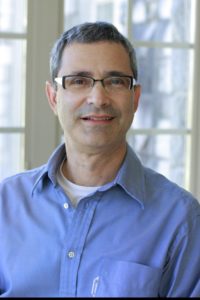Collaboration across differences:
Supporting governments, post-secondary institutions and NGOs in advancing equity, diversity, inclusion, access, reconciliation and decolonization through external and internal engagement initiatives.
I respectfully acknowledge that I live and work on the unceded traditional territories of the xʷməθkwəy̓əm (Musqueam), Skwxwú7mesh (Squamish), Səl̓ílwətaɬ (Tsleil-Waututh), q̓ic̓əy̓ (Katzie), kʷikʷəƛ̓əm (Kwikwetlem), qʼʷa:n̓ƛʼən̓ (Kwantlen) Nations and other Coast Salish Peoples.
Dr. Robert A. Daum (PhD, UC Berkeley) is a senior consultant for government, post-secondary institutions and NGOs, from foundations to museums. He specializes in the design and implementation of collaborative and transparent processes to support strategic change, public and internal engagement, and conflict management. A moderator and facilitator, he advises on strategic and operational complexities of, and leads trauma-informed, culturally competent, engagement-based initiatives to advance equity, diversity, inclusion, access, reconciliation and innovation.
Robert is Fellow in Equity, Diversity, Inclusion & Decolonization, as well as a Senior Consultant at Simon Fraser University’s Morris J. Wosk Centre for Dialogue, where he has been a Visiting Faculty member for two Semesters in Dialogue. He frequently collaborates with Lindsay Heller, Fellow, Indigenous Ways of Knowing, at SFU’s Morris J. Wosk Centre for Dialogue. He led SFU’s team developing the Advisory Council and its terms of reference for BC’s Office of the Human Rights Commissioner. Within the Centre for Dialogue, he is advising on and co-leading a collaborative, anti-racism initiative: Community Responses to Racism. He led SFU’s teams on three phases of work around the country with 30+ mostly Indigenous women facilitators for the National Inquiry into Missing and Murdered Indigenous Women and Girls in 2018 and 2019.
Together with Lindsay Heller and a 6-member research team convened by SFU’s Centre for Dialogue, he is co-leading a project for Justice Canada: “Experiences of Indigenous families in the family justice system (FJS): Perspectives from legal and frontline family justice professionals.”
He directed two public engagement projects regarding museums on behalf of the Centre for Dialogue for the Government of British Columbia: a series of community meetings in five cities regarding the new BC Chinese Canadian Museum, and a series of community meetings in five cities about the “modernization” of the Royal BC Museum. In 2019 he was the Principal Consultant and team lead on a research project for the provincial government’s Multiculturalism Branch regarding hate activities and hate crime.
He was the Lead Facilitator for a series of dialogues convened by SFU’s Centre for Dialogue to support BC’s Public Health Office, Ministry of Health and the Office of the Premier. The dialogues deepened consultations with faith communities around engagement and compliance with evolving PHO orders in the course of the COVID-19 pandemic. He led a series of Parent Forums regarding Online Learning in collaboration with Salam Tsegaye of SFU’s Morris J. Wosk Centre for Dialogue on behalf of BC’s Ministry of Education.
He is currently collaborating with Lindsay Heller and colleagues across SFU Lifelong Learning on a “Circles of Learning and Unlearning” Initiative to advance transformational inclusion in learning and teaching. In 2018 and 2019 he collaborated in the design and facilitation of a professional development initiative to advance equity, diversity and inclusion in the Certificate Program in Dialogue & Civic Engagement for SFU Lifelong Learning’s Leadership and Community Building unit, for which he continues to serve as an Advisor.
In 2019 he co-facilitated (with Math’ieya Alatini, former Chief, Kluane First Nation) the inaugural Summer Institute, Perspectives on Reconciliation, for senior officials of 31 Canadian universities and colleges. The Institute was a partnership of Yukon College, Vancouver Island University, Universities Canada, and Colleges and Institutes Canada, with support from the J. W. McConnell Family Foundation. A comprehensive report is here in English and in French. He facilitated a planning workshop in 2019 for the BC Collaborative for Social Infrastructure, an innovation initiative of VIU, SFU, UNBC and BCIT funded by the J. W. McConnell Family Foundation. As a Consultant he continues to support the Collaborative.
At the British Columbia Institute of Technology he served as a Collaborator-Facilitator for “Diversity Circles,” led by a faculty-staff team under the sponsorship of the BCIT Faculty-Staff Association, with funding from BCIT’s first SSHRC award (Colleges and Communities Social Innovation Fund). He and Lindsay Heller collaborated with BCIT’s Office of Respect, Diversity and Inclusion in the development of an institutional scan for diversity and inclusion as regards faculty, staff and students at its four campuses. This complemented their collaboration with an SFU Centre for Dialogue team, BCIT’s RDI Office and a BCIT Working Group in developing an Anti-racism Framework for BCIT. With Vancouver Island University’s Office of Indigenous Education and Engagement he facilitated a workshop in 2019 on co-creating promising practices for Indigenous students to thrive at VIU.
For Vancouver Community College’s Department of Indigenous Education and Community Engagement, he collaborated with Lindsay Heller on a 2-year initiative: “Co-creating an Indigenization Planning Framework.” For Adler University – Vancouver, he is collaborating with Lindsay Heller on a 3-year “Indigenization Readiness Initiative”.
From December, 2016 to February, 2022 he served as Chair of the Board of Directors of The Laurier Institution, a national not-for-profit organization established in 1989. A member of the founding Board of Directors of Reconciliation Canada, he served as a director from its inauguration in 2014 until December, 2019. In 2021 he was invited to be a founding member of the Canadian Network of Law & Humanities (CNLH).
Dr. Daum has served as a consultant, project lead and/or moderator for two Canadian Crown agencies: the Canadian Museum for Human Rights and the Canadian Race Relations Foundation. For the Museum he has led professional development workshops for interpreters, program developers and guides in 2017 and 2018. As a Senior Consultant he collaborated with the Museum in developing (and moderated) the Museum’s signature Canada 150 national public series, “After the Apology.” The public dialogue in Winnipeg centred on the aftermath of apologies to Indigenous peoples; in Vancouver, on the legacy of the Japanese Canadian Redress Agreement; in Halifax on apologies to African Nova Scotians regarding Africville. He was a member of the editorial board of the CRRF’s refereed Directions Journal: Research and Policy in Canadian Race Relations. He led the CRRF’s inaugural national Youth Ambassadors initiative. In 2016 he collaborated with students and colleagues at several Canadian universities coast-to-coast in creating an annual national inter-university dialogue on racism and inclusion, the CRRF’s annual Canada Lecture – Campus program (2016 – 2018).
At the University of British Columbia Dr. Daum served as a member of the Steering Committee and of the Inclusion and Openness Working Group for the University’s new Strategic Plan. As a consultant Dr. Daum has led projects for three different executive portfolios at UBC — Students, Equity and Inclusion, and External Relations. He has held appointments on committees for the Office of the President under two administrations, as well as for the Faculty of Arts. Examples of projects include a series of Community-University Engagement Dialogues designed with an interdisciplinary “innovation team” of students, faculty, staff and community members; the student consultation phase of a Board of Governors-mandated project (“UBC’s Engagement and Commitment to Student Diversity Initiative”); inter-university national and international student dialogues; and intercultural and interdisciplinary initiatives like UBC Transcultural Leaders. He has been a Faculty Associate of UBC’s Institute for Gender, Race, Sexuality and Social Justice, and an at-large Faculty Member of the Common Room at UBC’s Green College. He is currently a member of the Canadian Network of Law and Humanities (CNLH).
With UBC Okanagan’s Prof. Francisco Peña, Dr. Daum co-led an international consortium of interdisciplinary teams of researchers in nine countries. He also participated in “Confluences of Religious Cultures in Medieval Spanish Historiography: A Digital Humanities Project”. The Project is financed by a SSHRC Insight Development Grant and is led by Prof. Peña.
A Collaborator on three UBC-led, SSHRC-funded, interdisciplinary research projects, Dr. Daum has presented his research at academic and professional conferences, including delivering keynotes, in Canada, the United States, China, France, Spain, and Sweden. His work has appeared in leading scholarly journals and edited volumes. In Jan-April, 2018 he was a Visiting Faculty member at SFU, co-teaching with Prof. Diane Finegood and Prof. Mark Winston. Their 15-credit course, “Health & Wellness: Complex, Not Just Complicated,” was offered in SFU’s Semester in Dialogue Program.
From 2010 – 16 he was Honorary Associate Professor in UBC’s Department of Classical, Near Eastern and Religious Studies, where from 2002-2009 he was Diamond Chair in Jewish Law & Ethics. As Advisor to UBC’s Office of the Vice-President, Students (2013 – 2016), Dr. Daum led Student Diversity Dialogue, a research-grounded series of pilot programs that engaged student diversity, fostered collaboration and dialogue skills, and provided mentorship opportunities for students across cultural, social, and disciplinary differences. From 2009 – 2014 he was Associate Professor and Director, Iona Pacific Inter-religious Centre at Vancouver School of Theology.
Other Public and Community Service (partial list)
Dr. Daum co-convened (with Kory Wilson) the Intercultural and Civic Engagement Strategy Group for the City’s Vancouver Immigration Partnership from its launch in 2014 until the submission of its strategic report to the Mayor’s Working Group on Immigration in 2016. In June of 2018 he emceed the City’s annual Immigration Summit under the auspices of the Mayor’s Working Group on Immigration, with a focus on poverty reduction for refugees and asylum-seekers. Dr. Daum was one of 12 Canadians appointed (in his case, as an academic delegate) to the first formal, bilateral national dialogue between the Canadian Conference of Catholic Bishops and the Canadian Rabbinic Caucus.

